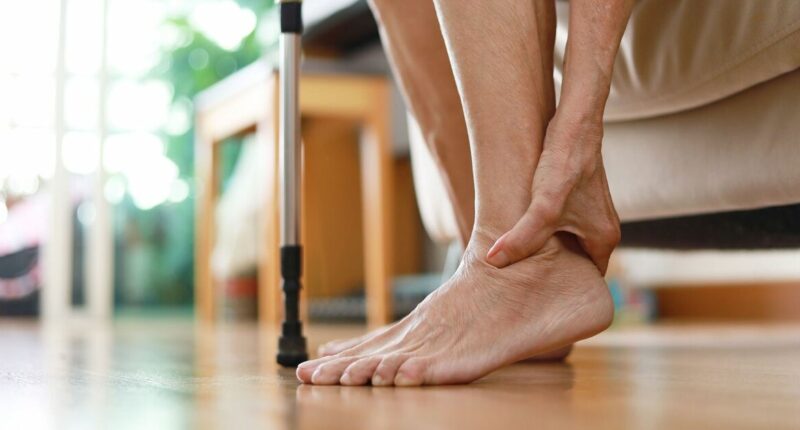Share this @internewscast.com
Anyone can suffer from high cholesterol, which too much of the natural fatty substance builds up in their blood. Produced in the liver and found in common foods such as butter and processed meat, cholesterol is needed in the body for building cells, producing hormones and aiding digestion.
But high levels of “bad” cholesterol can lead to fatty deposits in the walls of blood vessels which cause them to narrow, increasing risk of a heart attack or stroke. So how do you know if you have high cholesterol, and what should you do about it?
What are the symptoms of high cholesterol?
High cholesterol often has no noticeable symptoms and is therefore sometimes described as a “silent killer”.
However, around one in 250 people have a genetic disorder characterised by high cholesterol levels, called familial hypercholesterolemia. According to the British Heart Foundation, sufferers may have three visible signs of high cholesterol.
The first is tendon xanthomata, which causes yellowish, cholesterol-rich deposits to appear on the knuckles of you hands, knees or the Achilles tendon at the back of the ankle.
Similarly, xanthelasmas are small, yellow lumps of cholesterol that appear near the inner corner of the eye.
Finally, people with familial hypercholesterolemia may develop a corneal arcus — a grey or white ring that appears around the edge of the cornea in the eye.
What causes high cholesterol?
Some causes of high cholesterol are in our control, while others are not.
Eating too much saturated fat can reduce the liver’s ability to remove cholesterol, while being physically inactive, overweight or obese, and smoking can lead to higher cholesterol levels.
Older people are also more likely to have high cholesterol, as are men. For women, cholesterol levels tend to increase during and after menopause due to declining levels of oestrogen, which plays a role in regulating cholesterol.
Certain health conditions such as kidney disease, liver disease and type 2 diabetes are also associated with an increased risk of high cholesterol.
What should I do if I notice any of these symptoms?
If worried about your cholesterol levels, you can ask your GP for a simple blood test.
Should the test confirm high blood cholesterol, lifestyle changes like improving your diet, exercising more and maintaining a healthy weight can help.
A doctor may advise cutting down on alcohol or stopping smoking. And they may prescribe statins — cheap pills which are the main medication used to reduce cholesterol.
If you have high cholesterol, you will be invited for regular blood tests to monitor levels and adjust treatment if necessary.
More information can be found on the British Heart Foundation’s website here.













